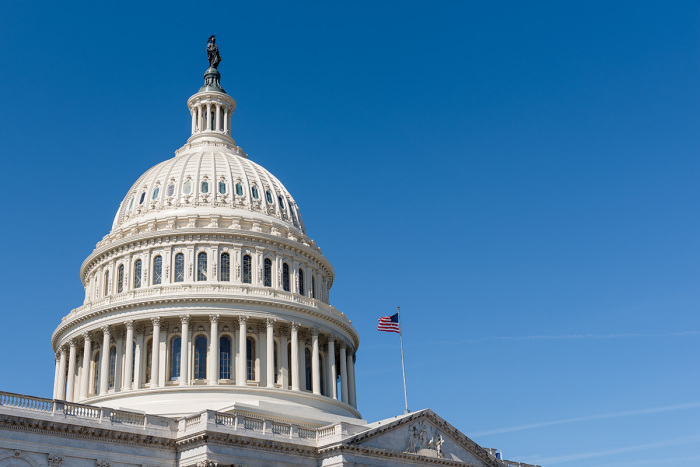House passes amendments to block Pentagon from funding abortion travel, gender transition surgeries

The U.S. House of Representatives passed amendments to a major defense spending bill seeking to ensure that the Pentagon can't pay for service members to travel out of state to obtain abortions or fund gender transition procedures as the appropriations process continues.
The Republican-controlled lower chamber approved amendments to the National Defense Authorization Act for the fiscal year 2024 Thursday that would ban the Pentagon from funding travel expenses for service members or their families to get abortions and funding gender transition surgeries.
The bill, which spans over 1,200 pages, authorizes "appropriations for fiscal year 2024 for military activities of the U.S. Department of Defense, and for defense activities of the Department of Energy."
The Jackson Amendment, which prohibits "the Secretary of Defense from paying for or reimbursing expenses relating to abortion services," passed in a 221-213 vote that largely fell along party lines. Reps. John Duarte, R-Calif., and Brian Fitzpatrick, R-Pa., joined Democrats in opposing the amendment, while Rep. Henry Cuellar, D-Texas, broke with his party to support it.
The amendment comes in response to Secretary of Defense Lloyd Austin's publication of a memorandum devoted to "Ensuring Access to Reproductive Care."
The memo, distributed to senior Pentagon leadership last fall, called on the Department of Defense to establish "travel and transportation allowances for Service members and their dependents" to obtain abortions.
Austin pointed to the U.S. Supreme Court's June 2022 decision in Dobbs v. Jackson Women's Health Organization, which determined that the U.S. Constitution does not contain a right to abortion, as the justification for the policy change.
Noting that many states implemented bans and restrictions on abortion following the Dobbs decision, the memo expressed concern that many service members and their families "may be forced to travel greater distances, take more time off from work, and pay more out of pocket expenses to receive reproductive healthcare."
In a statement shared with The Christian Post, March for Life President Jeanne Mancini praised the passage of the Jackson Amendment as "a critical first step towards protecting our taxpayers from paying for elective abortions for our military, or for abortion-related travel expenses for military and their family members."
"With this amendment in place, the NDAA will be safe from the Biden administration's radical and illegal abortion policies at the Department of Defense, and our military and their unborn family members will be guarded from the harms of abortion," Mancini stated.
The House also agreed to the Norman Amendment, which prohibits the "provision of gender transition procedures, including surgery or medication, through the Exceptional Family Member Program," in a 222-210 vote. Rep. Ken Buck, R-Colo., joined Democrats in opposition to the amendment and Cuellar joined Republicans in support.
The Norman Amendment attempts to prevent efforts to expand the list of conditions covered under the Exceptional Family Member Program designed for service members who have children with special needs to include gender dysphoria. Rep. Jimmy Panetta, D-Calif., introduced the Armed Forces Transgender Dependent Protection Act in the 117th U.S. Congress. It did not gain traction.
The NDAA must first secure the approval of the full House and the Democrat-controlled U.S. Senate before it can head to President Joe Biden's desk for a signature. The U.S. Senate has compiled its version of the defense-related spending package, which comes in at slightly less than 1,200 pages.
In remarks on the Senate floor Thursday, Senate Majority Leader Chuck Schumer, D-N.Y., indicated that the upper chamber would vote on its version of the NDAA Tuesday. Schumer told members, "we're encouraging filing amendments for the manager's package before the close of business today."
"[Senate Minority Leader] Mitch McConnell, the committees, and I will have our teams working over the weekend to see what we can include in the package of amendments," he vowed. "Undoubtedly, hundreds of amendments will be filed to this important piece of legislation."
"I am hopeful that all committee chairs and committee rankers will work together in good faith. Obviously, both sides will want to have amendments votes. Just like we have in recent efforts, I am willing to ensure we consider and vote a reasonable number of amendments," he added.
It remains to be seen whether a senator will offer amendments to the Senate version of the NDAA along the lines of the Jackson and Norman Amendments. The tight margin in the U.S. Senate, which consists of 51 Democrats and 49 Republicans, makes it a distinct possibility that such amendments would fail in light of how polarizing nature of abortion and LGBT issues.
The House will continue voting on amendments to its version of the NDAA Friday before it puts its final version of the bill up for a vote. If and when the House and the Senate pass their respective bills with amendments, the two chambers will have to iron out the differences and vote on a final version of the package before it can head to Biden's desk.
Ryan Foley is a reporter for The Christian Post. He can be reached at: [email protected]




























